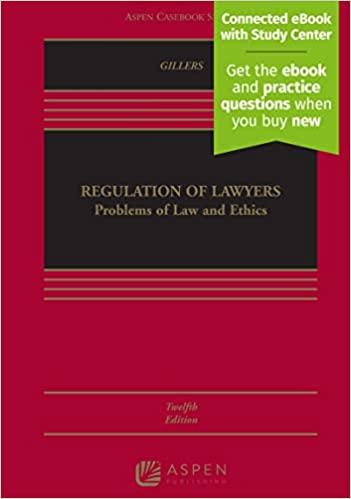Question
John recently purchased a new stereo from Jane's Stereo Outlet. He did not pay the full price and instead agreed to pay $200 per month
John recently purchased a new stereo from Jane's Stereo Outlet. He did not pay the full price and instead agreed to pay $200 per month for six months. After two months, John stopped paying. John lives in Florida where there is a garnishment statute allowing lenders to take money out of debtor's paychecks. Jane's Stereo Outlet went to the courthouse and filed the necessary paperwork. That afternoon, the court mailed a letter to John informing him that his wages will be garnished in two weeks. Two weeks later, when John got his next paycheck, he realized that $200 (1/3 of the total) had been taken out. John then asked the court to stop the garnishment and the court clerk said he would need to wait until a full hearing could be held. John then requested a hearing, but learned that the next available time would not be until two months later. John thinks his due process rights have been violated and that, therefore, the state statute is unconstitutional. Analyze how a court would respond to John's argument.
Step by Step Solution
There are 3 Steps involved in it
Step: 1

Get Instant Access to Expert-Tailored Solutions
See step-by-step solutions with expert insights and AI powered tools for academic success
Step: 2

Step: 3

Ace Your Homework with AI
Get the answers you need in no time with our AI-driven, step-by-step assistance
Get Started


